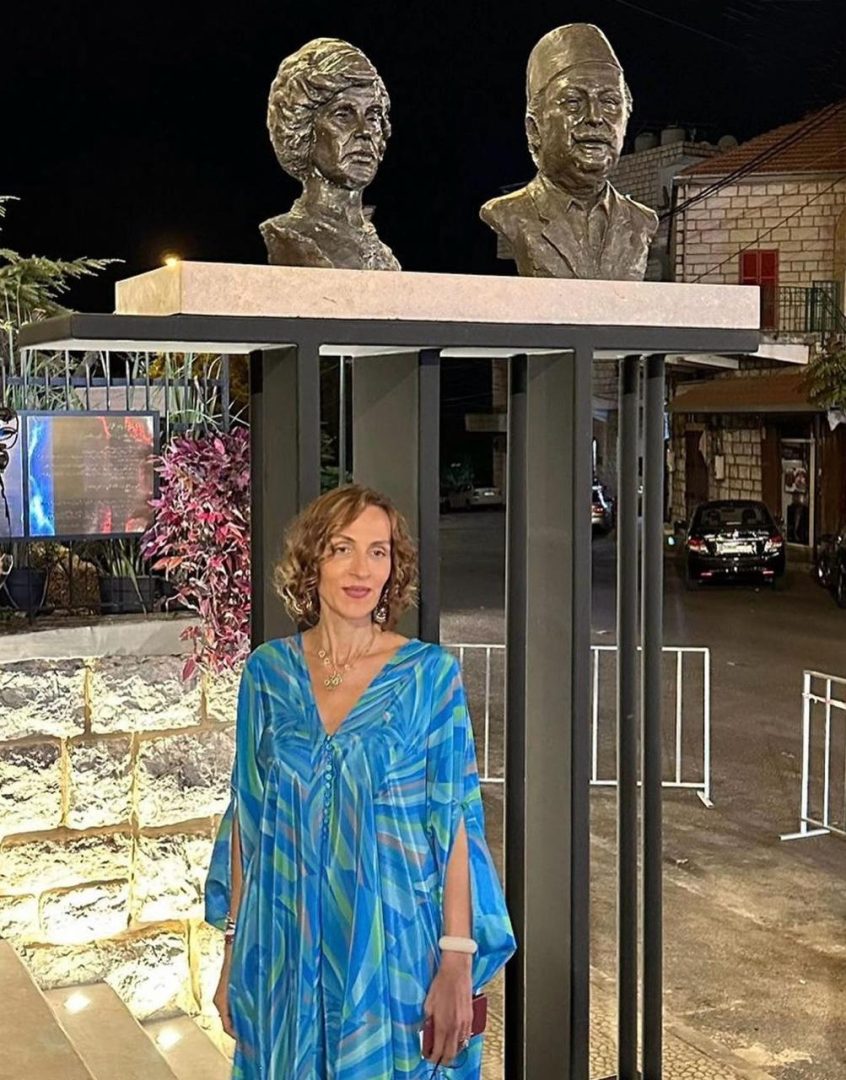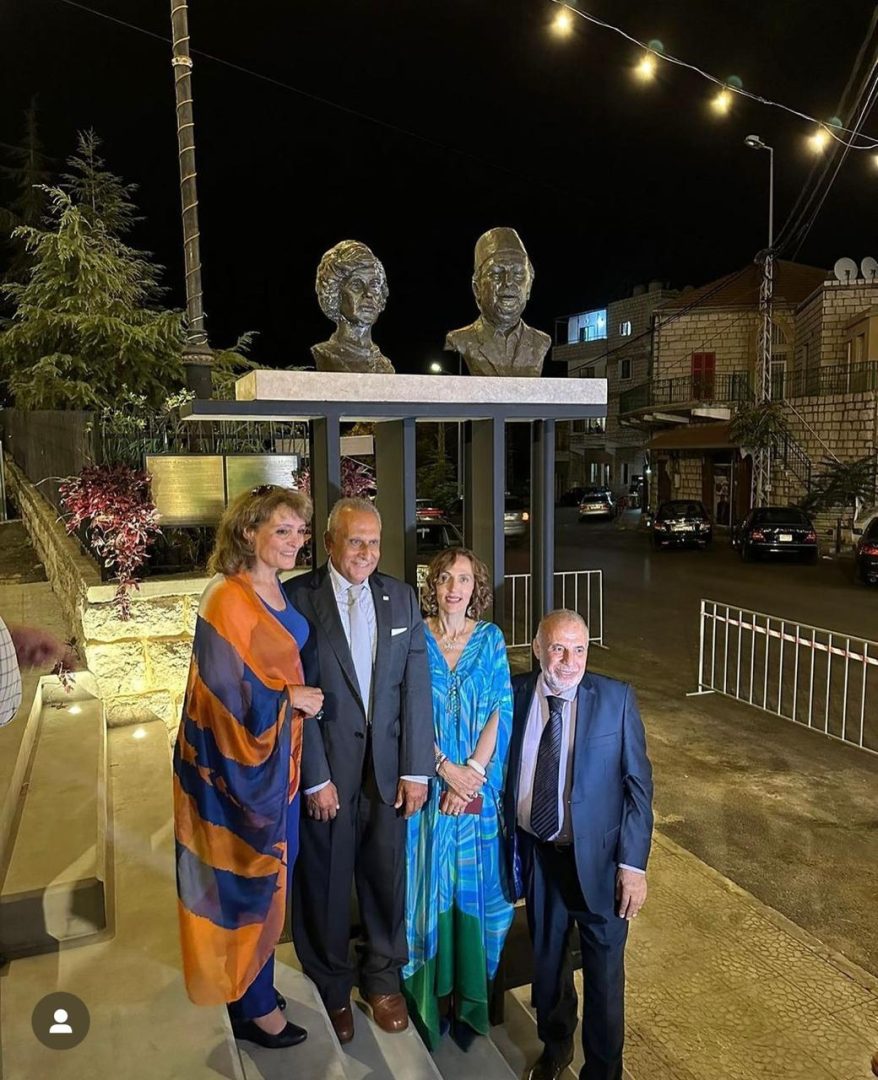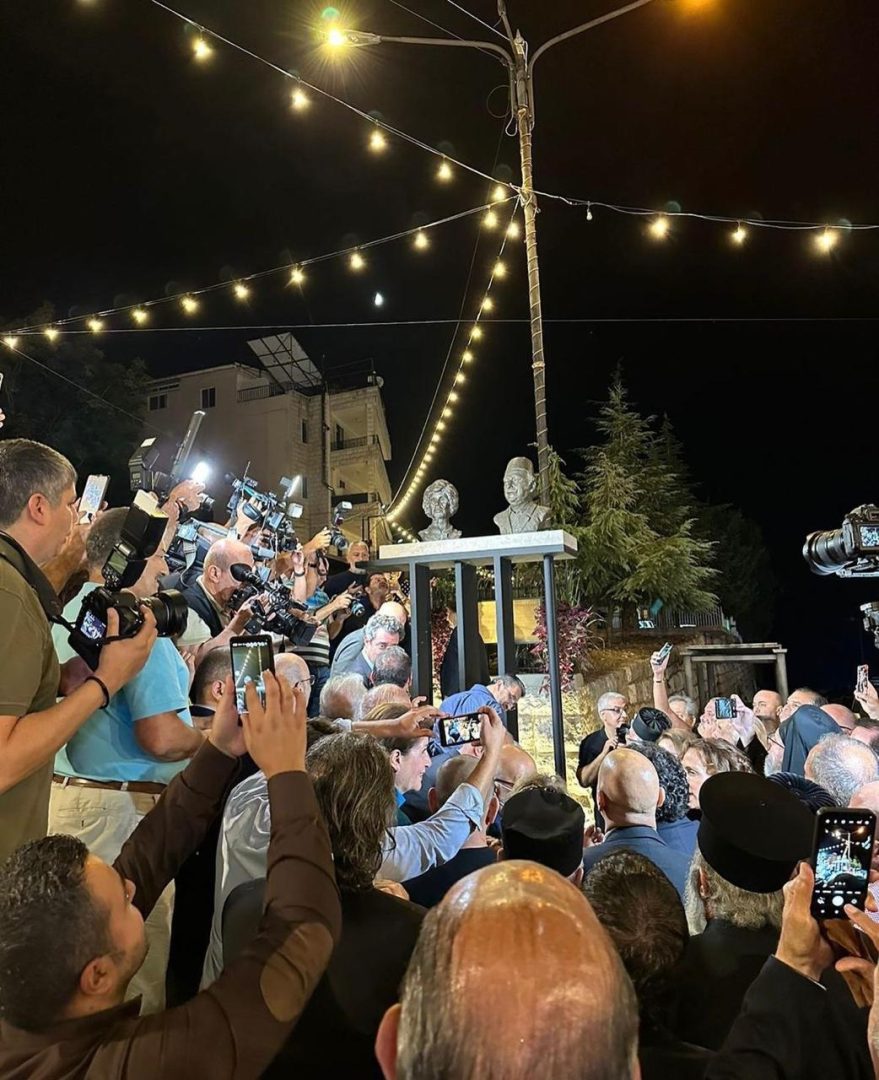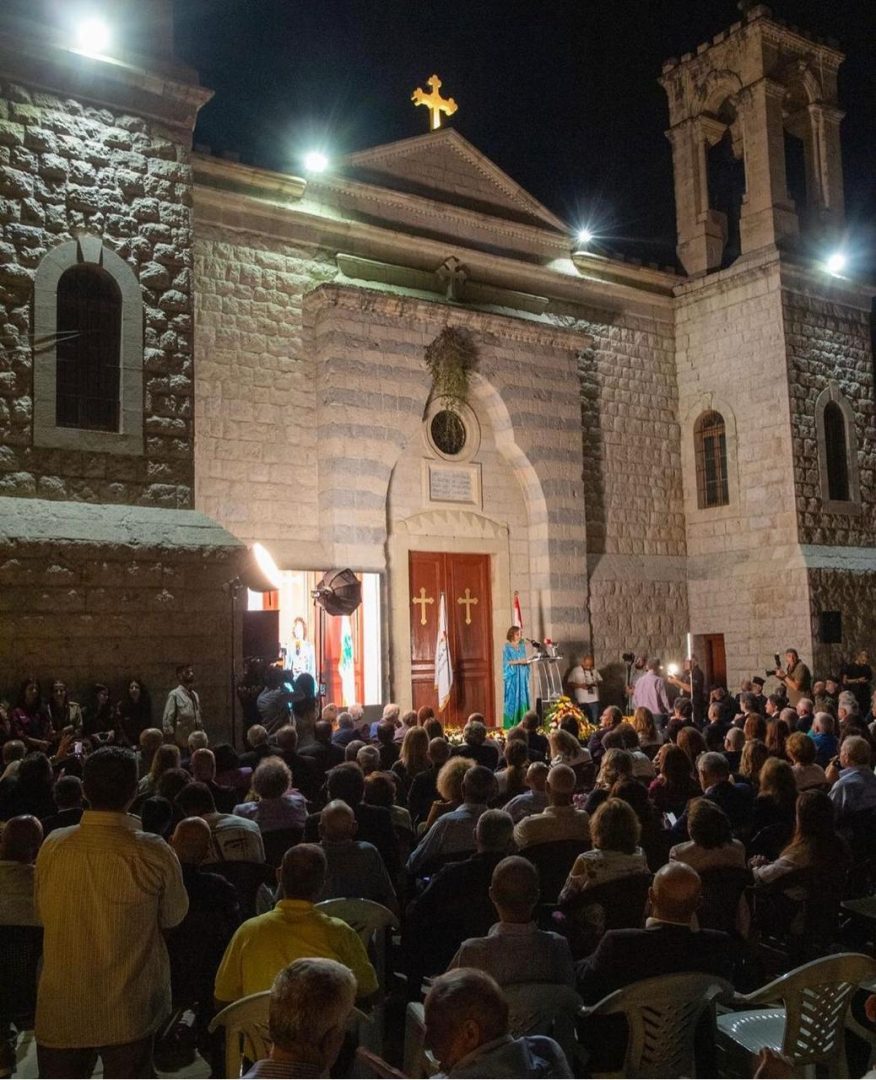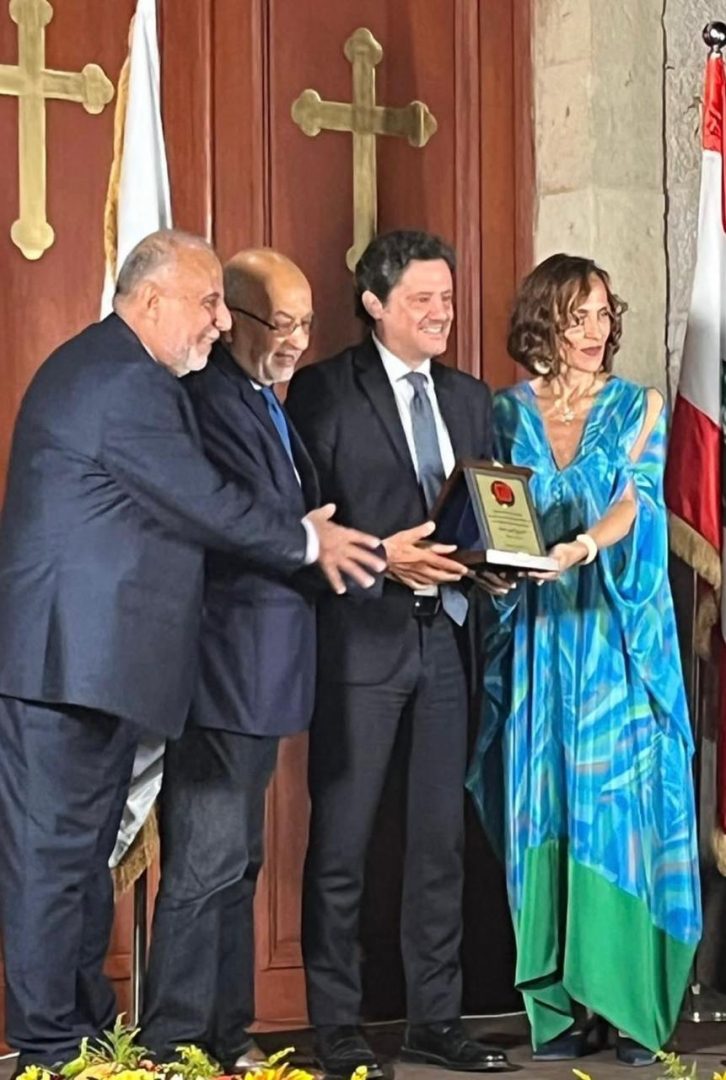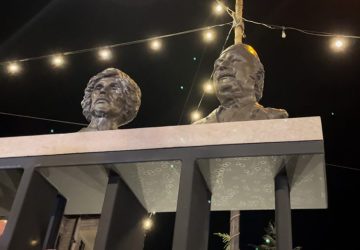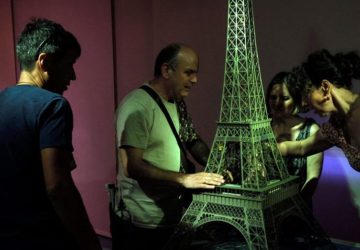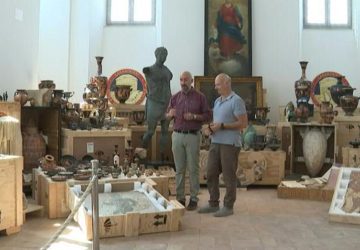Listen to the article
Last Wednesday, Aley paid a heartfelt tribute to Abou Melhem and Oum Melhem, the legendary couple of Lebanese television. During this emotional ceremony, their granddaughter, Nidal Haddad, spoke with emotion about the authenticity, wisdom, and lasting imprint her grandparents left in the hearts of the Lebanese, calling them “model grandparents” for an entire nation.
Statues of Abou Melhem and Oum Melhem, created by artist Ghinwa Radwan, were unveiled before an emotional and admiring crowd. This occasion invites us to revisit the extraordinary journey of Adib Haddad and Salwa Farès el-Hajj, better known as Abou Melhem and Oum Melhem, who left their mark on the golden age of Lebanese television from 1959 to 1982.
Born in Aley, Adib Haddad and Salwa Al-Hajj are the first and only residents of this town, as well as the first and only married couple, to receive such an honor. In November 2021, LibanPost had already paid homage to them by issuing a postage stamp bearing their image. This recognition illustrates the profound influence they exerted on Lebanese popular culture and the pride their hometown feels for these two natives who proudly represented Aley throughout their rich and unforgettable artistic careers.
Adib Haddad and Salwa Al-Hajj won over viewers with their disarming authenticity and on-screen as well as off-screen chemistry. Their talent and popularity were such that the statues erected in their honor this week seem like a natural extension of the lasting imprint they left in the collective memory.
Their granddaughter, Nidal Haddad, attests to the authenticity of her grandparents: “Em Melhem and Abou Melhem lived in sincerity, with a personality that only knew sincerity. They were themselves on screen and among their viewers, their acquaintances, and us, their family. They touched the essence of life and revered love for others and respect for the homeland. Close to people, their wise words reached the hearts of both young and old, simply and humanly.”
Their flagship show, “Ysed masekoun,” aired weekly and was eagerly awaited by millions of Lebanese. As soon as the first notes of the theme music played, families would gather in front of their television sets, or at a neighbor’s house for those who did not yet have a TV, to avoid missing a single minute of this must-watch show.
Written by Adib Haddad himself, the show portrayed with poetic realism the simple and authentic lives of Lebanese villagers. The stories, rooted in daily life and traditions, depicted human relationships in all their richness and complexity. The success was immediate and resounding: in 1968, a survey revealed that “Ysed masekoun” was the favorite show of 52% of viewers, and Adib Haddad was named “Best TV Personality.”
But beyond the numbers and awards, it is in the hearts of the Lebanese that Abou Melhem and Oum Melhem left their deepest mark. Embodying wisdom, kindness and humor, they became familiar and reassuring figures, almost like family members to millions of viewers.
Nidal Haddad remembers her grandmother’s strong personality: “Em Melhem was intelligent, strong, and always had her say. Abou Melhem would beg her not to stray from the original script during live broadcasts. But she did as she pleased. She was just as spontaneous with her sarcastic comments on screen as she was at home.”
Abou Melhem, with his colorful and poetic speech, drawing from the richness of the mountain dialect, delivered good advice and witty remarks, solving all problems with optimism and good cheer. “For Independence Day and Teachers’ Day, my grandfather would write me verses that I proudly recited during school celebrations,” Nidal recalls. “I loved accompanying him to church. His voice would transport me to the songs of angels. I loved his chickpea fatté.”
Their names became synonymous with harmony and popular wisdom: when faced with a dilemma, people would ask, “What would Abou Melhem say?” Their image symbolized an ideal of simple and happy living, a comforting refuge in a changing world. “When people connect me to my grandparents, they quickly forget they are talking to me, and it’s them they see through me. Their aura. Their gaze. As if through me, they could somehow reach them,” confides Nidal.
For decades, Abou Melhem and Oum Melhem reigned over the small screen, becoming legends of Lebanese television. Their show, reflecting an era and a society, deeply influenced the collective imagination and became an essential reference of the golden age of Lebanese TV.
Even today, their memory remains alive: they are the familiar and kind faces of an eternal, authentic and warm Lebanon that continues to live on in the hearts of those who grew up with them.
For Nidal Haddad, this tribute holds special meaning: “It’s a very emotional moment. My grandparents do not belong to me. They represent the model grandparents of all the Lebanese who grew up following their advice, based on principles of integrity, grounded in healthy and just human values. This tribute is a tribute to Lebanese identity, to our rich cultural heritage. This legendary couple, etched in the collective memory, left an indelible mark on the artistic scene and, above all, in the hearts of the Lebanese people.”


